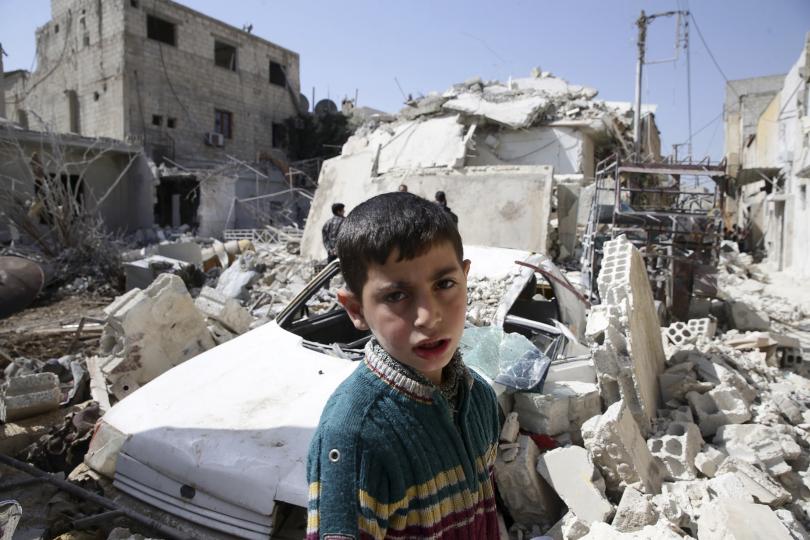
"Moscow's challenge to the international rules-based order now extends to Syria and the Eastern Mediterranean," NATO deputy secretary general Alexander Vershbow said at an annual conference in Krakow, Poland.
"As Russia has provided greater levels of military support for President Assad -- including bombing moderate opposition groups, and driving tens of thousands of civilians from Aleppo and other cities -- it has made it even more difficult to find a long-term end to the violence and a negotiated peace and political transition."
French President Francois Hollande and British Prime Minister David Cameron had on Thursday also called on Russia and the Syrian regime to "immediately stop attacks on the moderate opposition".
Speaking ahead of peace talks set for next week, Vershbow said he hoped the "current cessation of hostilities can be developed into something much longer lasting".
Air strikes and fighting have been drastically reduced by an unprecedented ceasefire brokered by Russia and the United States but some intermittent clashes and shelling continue, and many residents fear that the truce may not hold.
"Russia could still use its influence over Assad to be a force for peace in the Middle East. But it is still unclear whether this is Moscow's ultimate aim," Vershbow said.
His comments come on the heels of a stark warning earlier this week by NATO's top general that "Russia and the Assad regime are deliberately weaponizing migration in an attempt to overwhelm European structures and break European resolve."
Syria's conflict, which spiralled from widespread anti-government protests into an all-out civil war, has forced millions of people to flee their homes.
Of the record 1.2 million asylum seekers that arrived in the European Union in 2015, fresh figures published Friday showed Syrians were the largest group, numbering nearly 363,000.
More than 270,000 people have died in Syria since the conflict erupted in March 2011.

















COMMENTS (2)
Comments are moderated and generally will be posted if they are on-topic and not abusive.
For more information, please see our Comments FAQ